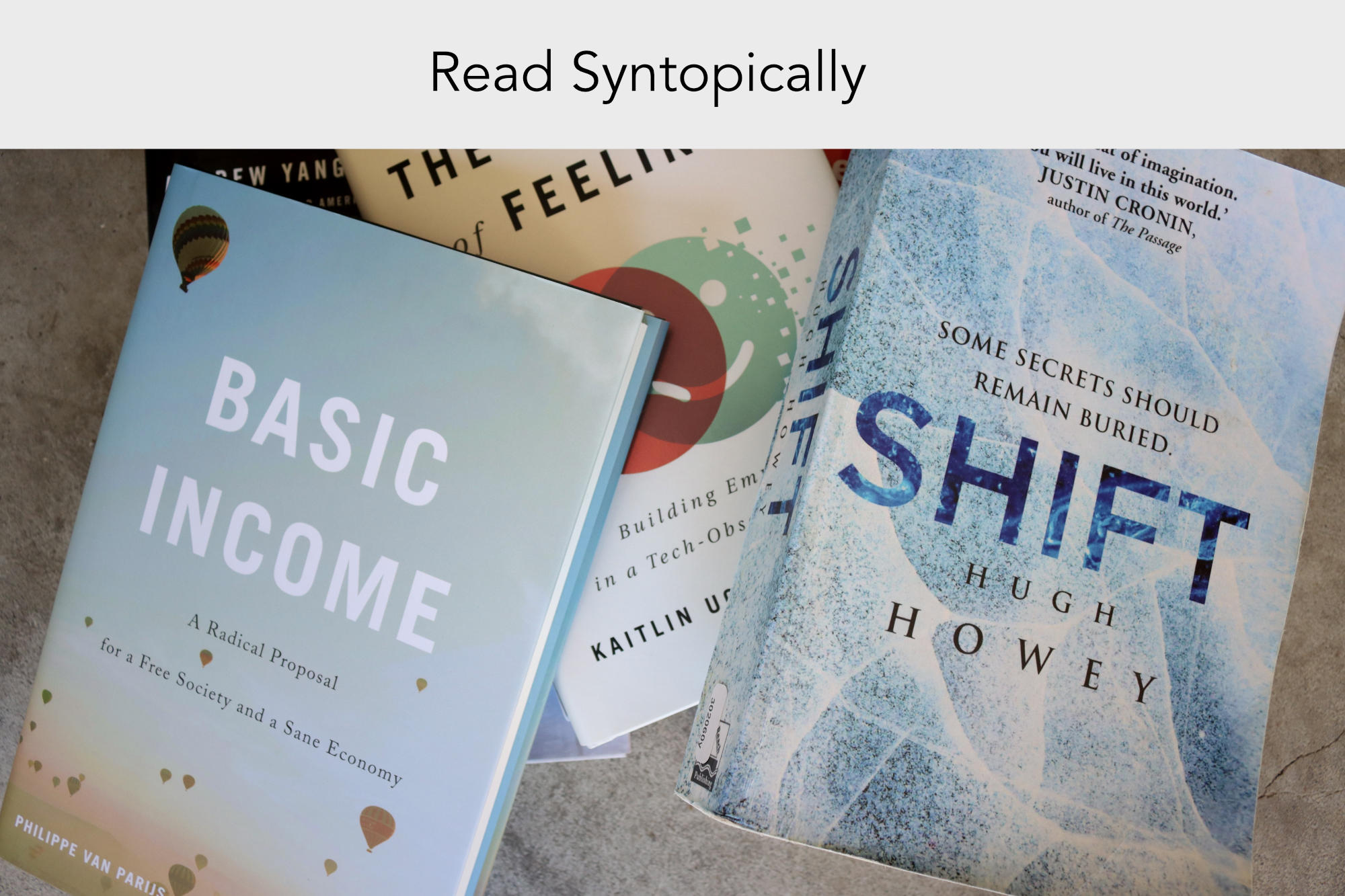Today we're going to address a question I get fairly regularly. We'll highlight the version Craig asked.
Hi Curtis, hope you and the family are well. I've been reading How to read a book as have seen you suggest it a number of times. I really grasped the elementrary and the inspectional reading. However the analyitcal bit has left me overwhelmed a little. I've read your blog post from 2016 with your break down, which has helped, but then the syntopical part comes along and overwhelms me again.
I know you read a lot, while having a lot of other commitments and things you do, how often do you find youself reading to those levels? At least to begin with? I feel like I would read a book every 6 months following it.
Craig
Yes back in 2016 I talked about How to Read a Book and have said regularly that it is one of the must read books if you want to be good at gathering information. In Adler's work, there are 4 levels of reading.
- Basic Comprehension or Elementary Readnig
- Inspectional Reading
- Analytical Reading
- Syntopical Reading
Before I answer Craig's specific question, let's get a basic definition of the last two levels of reading.
Analytical reading mainly concerns itself with understanding what the author is saying in detail and evaluating if it's achieved the purpose intended by the author. You'll also try to glean if what the author said is true and if what they said matters to you, or in the grand scheme of life. This means you must understand the arguments of the author and decide if they've supported their arguments.
Syntopical reading is where you look at an entire subject and go through it with an analytical bent. Adler suggests that you filter out a list of the most relevant books/readings in a field and then you read each one analytically/inspectionally (level 2 of reading) while making notes on them. I'd say this is equivalent to taking notes on books in your Zettelkasten system.
Some of those books will need a deeper read so you'll work through at a deep analytical level and across the subject you'll do things like normalize the language used by the authors so that you have a unified understanding of where each work sits when it comes to your topic. You can see a bit of this in action when I looked at The Dip and Range together. I normalized and combined the ideas into a more complete understanding of the subject they address.
How Often Do You Read Syntopically?
Now to answer Craig's question, not a lot. I read syntopically when I'm interested in going into a subject deeper. Often I've read a bunch of books in a genre over many months, and they were interspersed with other books that dealt with other topics. At some point I realize I keep coming back to an idea or group of ideas and then I'll start to work through my Zettelkasten to see where holes are and try to fill them in by looking at more books in the field and reading them in a syntopical fashion.
So Craig, don't read syntopcially all the time. You will get exhausted and never finish anything. Read syntopcially when you're interested and see some connections already. Maybe it will turn into a book, as I'm toying with in one or two areas, or maybe it will just turn into you being more educated.
Certainly don't force it unless you have to for work or school.
